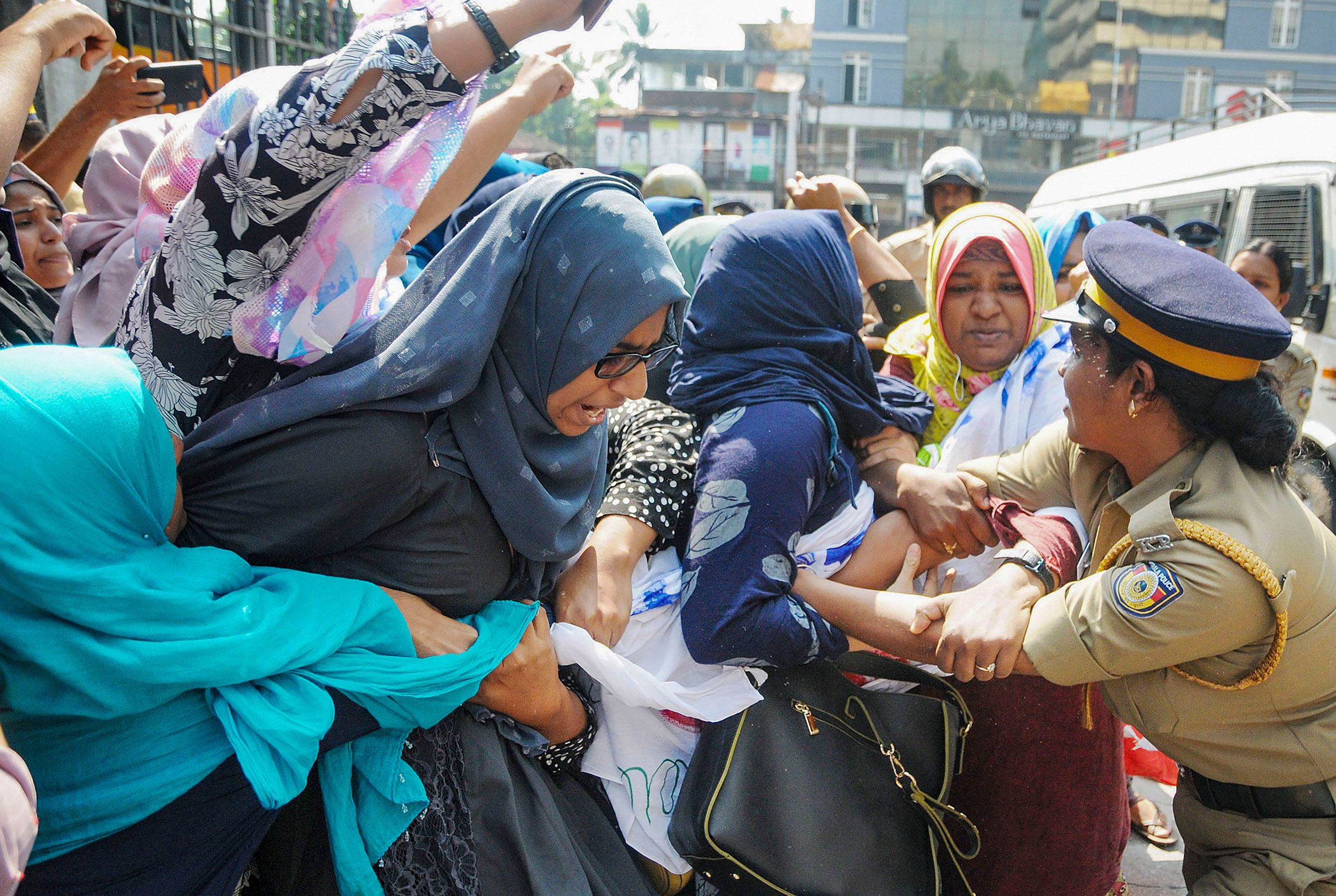An unapproved shutdown in Kerala during which highways were blocked by people protesting the Citizenship (Amendment) Act and the National Register of Citizens, several buses vandalised and stones thrown at shops threw life out of gear on Tuesday.
The daylong shutdown was organised by more than 30 small political parties, Muslim and Dalit organisations. According to a police statement, 278 protesters were arrested as the organisers did not have the necessary permission. Some 180 people were taken into preventive custody on a day when several buses belonging to the Kerala State Road Transport Corporation were damaged in stone pelting.
None of the constituents of the ruling Left Democratic Front or the Opposition United Democratic Front joined the shutdown as the call was first given by the Muslim Right-wing Social Democratic Party of India (SDPI).
In a decision unprecedented in recent memory, parties belonging to the two rival fronts had staged a sit-in at state capital Thiruvananthapuram on Monday against the CAA and the NRC.
A day later, 32 smaller parties and organisations sought to cash in on the momentum by organising Tuesday’s shutdown. These outfits, which had announced the shutdown on Sunday, did not serve the mandatory seven-day period before going ahead with such a protest.
Chief minister Pinarayi Vijayan had last week declared that the state government would not allow the CAA and the NRC to be implemented in Kerala since they were “unconstitutional”.
Besides the SDPI, the Welfare Party of India, Bahujan Samaj Party, Samastha Kerala Jamiyathul Ulama, Dalit Human Rights Movement and the Jama’ath Council were among those that participated in the shutdown.
The Indian Union Muslim League and the All India Sunni Jamiyyathul Ulema were among the mainstream Muslim parties and groups that stayed away since they did not want anything to do with Right-wing organisations like the SDPI.
Director-general of police Loknath Behera had on Monday warned the protesters against going ahead with the shutdown since they did not wait for the mandatory seven-day notice period to end. But that didn’t deter the protesters from enforcing the dawn-to-dusk shutdown by forcing business establishments to stay closed for 12 hours till 6pm.
Thiruvananthapuram, Ernakulam and the north Kerala cities of Palakkad, Kannur, Kozhikode and Wayanad were the worst affected as protesters, including men, women and teenagers, squatted on main roads blocking early morning traffic. They refused to heed police warnings to clear the roads.
A pro-shutdown march taken out in Thiruvananthapuram turned violent when the participants hurled stones at shops that dared to stay open and smashed windscreens of government buses.
Riot police had to use water canons multiple times as another group of protesters marched towards the accountant-general’s office in the state capital.
A protest march at Palakkad also turned violent, forcing the police to wield their batons to disperse the protesters who blocked the main roads.
While the state-owned Kerala State Road Transport Corporation operated most services, private buses stayed off the roads fearing trouble.
Protesters threw stones at KSRTC buses in Thiruvananthapuram, Kannur, Kozhikode, Palakkad, Ernakulam and Wayanad.
Almost all the inter-state private buses coming from cities like Bangalore and Chennai had reached their destinations in Kerala before the protests began.
While the government refused to postpone the winter exams at schools and colleges, students of engineering colleges boycotted their exams as many could not reach on time. With the engineering colleges disagreeing with the students’ demand for an alternative date, strikes were held on campuses.
Many students complained that they would lose placement opportunities if they were not allowed to write the exams soon.
At Bangalore in neighbouring Karnataka, a few hundred students from various colleges marched raising slogans against the CAA and the NRC and the atrocities on students in north India.
The police stopped the march and bundled them into vans since they did not have permission to protest on streets.











